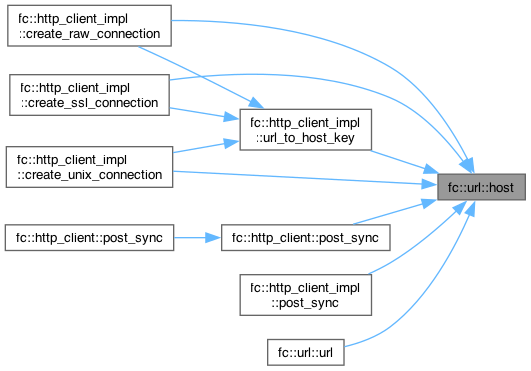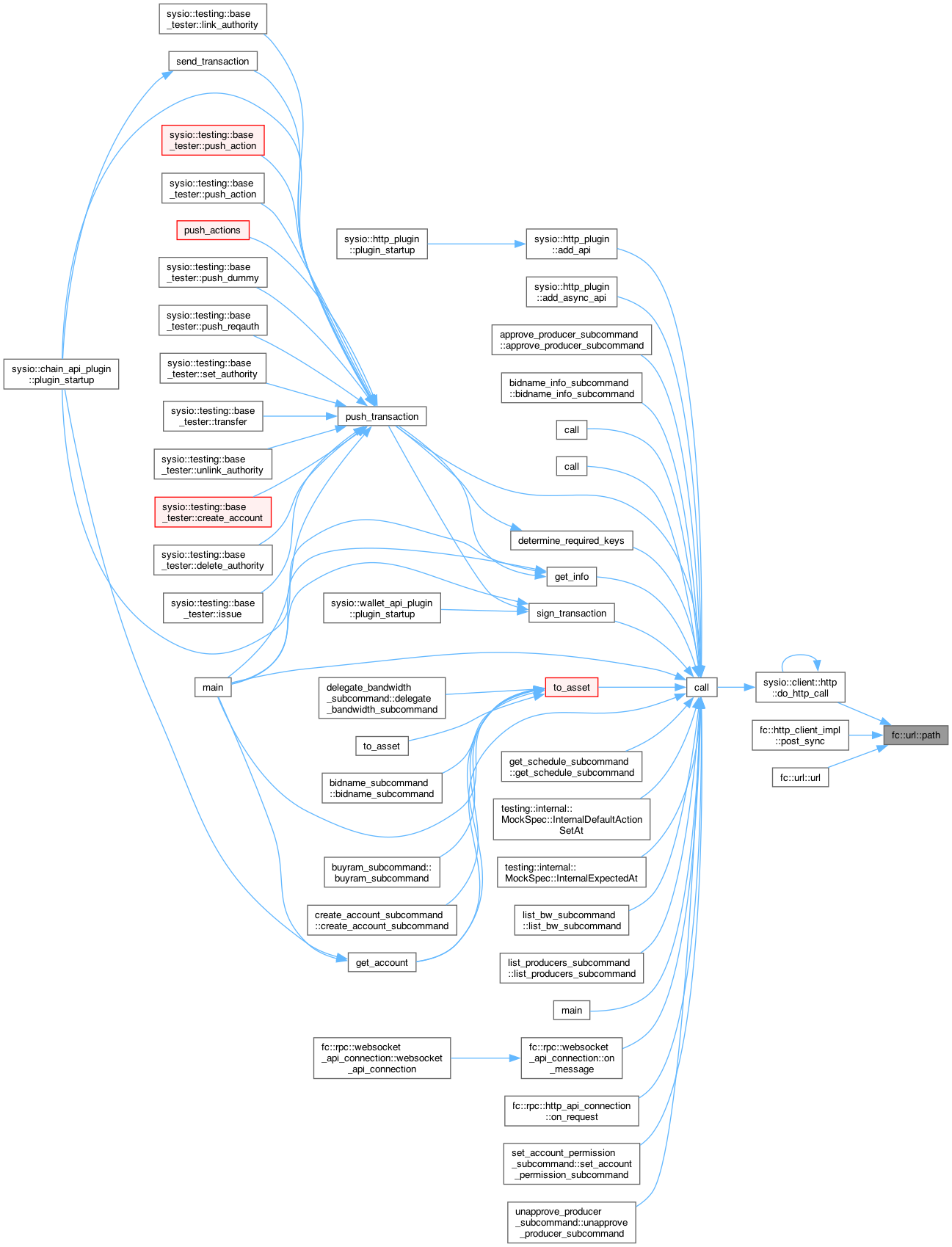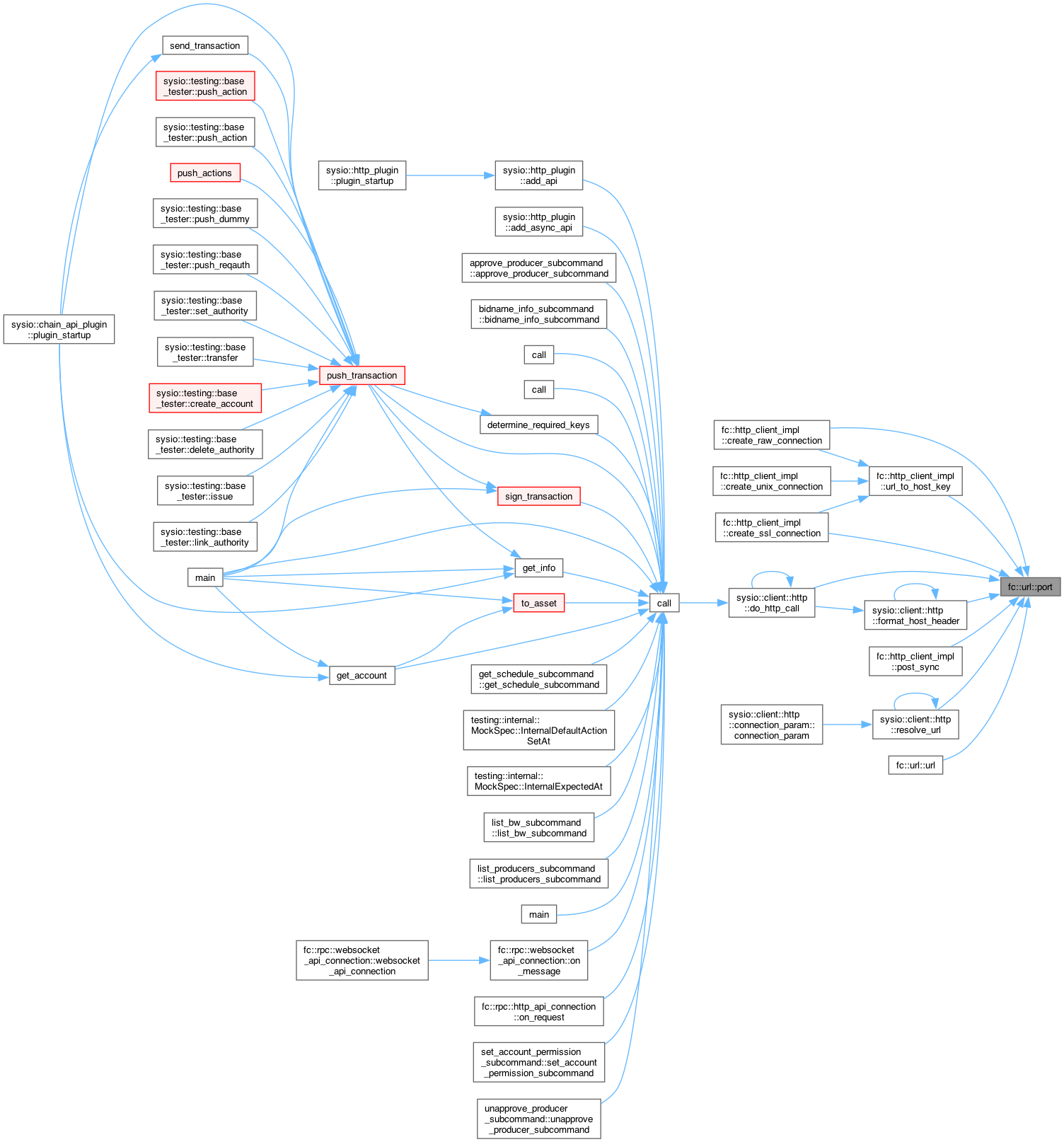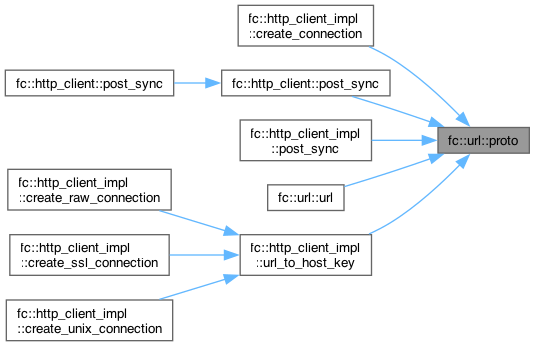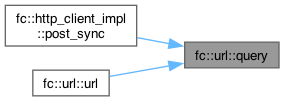Loading...
Searching...
No Matches
fc::url Class Reference
#include <url.hpp>
Public Member Functions | |
| url () | |
| url (const string &u) | |
| url (const url &c) | |
| url (url &&c) | |
| url (const string &proto, const ostring &host, const ostring &user, const ostring &pass, const opath &path, const ostring &query, const ovariant_object &args, const std::optional< uint16_t > &port) | |
| ~url () | |
| url & | operator= (const url &c) |
| url & | operator= (url &&c) |
| url & | operator= (const mutable_url &c) |
| url & | operator= (mutable_url &&c) |
| bool | operator== (const url &cmp) const |
| operator string () const | |
| string | proto () const |
| ostring | host () const |
| ostring | user () const |
| ostring | pass () const |
| opath | path () const |
| ostring | query () const |
| ovariant_object | args () const |
| std::optional< uint16_t > | port () const |
Friends | |
| class | mutable_url |
Detailed Description
Constructor & Destructor Documentation
◆ url() [1/5]
| fc::url::url | ( | ) |
Definition at line 121 of file url.cpp.
122 :my( get_null_url() )
123 { }
◆ url() [2/5]
|
explicit |
◆ url() [3/5]
◆ url() [4/5]
| fc::url::url | ( | url && | c | ) |
◆ url() [5/5]
| fc::url::url | ( | const string & | proto, |
| const ostring & | host, | ||
| const ostring & | user, | ||
| const ostring & | pass, | ||
| const opath & | path, | ||
| const ostring & | query, | ||
| const ovariant_object & | args, | ||
| const std::optional< uint16_t > & | port ) |
Definition at line 134 of file url.cpp.
136 :my( std::make_shared<detail::url_impl>() )
137 {
138 my->_proto = proto;
139 my->_host = host;
140 my->_user = user;
141 my->_pass = pass;
142 my->_path = path;
143 my->_query = query;
144 my->_args = args;
145 my->_port = port;
146 }
Here is the call graph for this function:
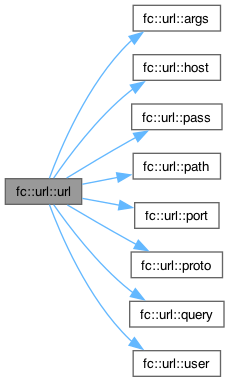
◆ ~url()
Member Function Documentation
◆ args()
| ovariant_object fc::url::args | ( | ) | const |
◆ host()
| ostring fc::url::host | ( | ) | const |
◆ operator string()
| fc::url::operator string | ( | ) | const |
◆ operator=() [1/4]
| url & fc::url::operator= | ( | const mutable_url & | c | ) |
◆ operator=() [2/4]
◆ operator=() [3/4]
| url & fc::url::operator= | ( | mutable_url && | c | ) |
◆ operator=() [4/4]
Definition at line 156 of file url.cpp.
157 {
158 if( this != &u )
159 {
160 my = fc::move(u.my);
161 u.my= get_null_url();
162 }
163 return *this;
164 }
Here is the call graph for this function:

◆ operator==()
| bool fc::url::operator== | ( | const url & | cmp | ) | const |
◆ pass()
| ostring fc::url::pass | ( | ) | const |
◆ path()
| opath fc::url::path | ( | ) | const |
◆ port()
| std::optional< uint16_t > fc::url::port | ( | ) | const |
◆ proto()
| string fc::url::proto | ( | ) | const |
◆ query()
| ostring fc::url::query | ( | ) | const |
◆ user()
| ostring fc::url::user | ( | ) | const |
Friends And Related Symbol Documentation
◆ mutable_url
The documentation for this class was generated from the following files:


